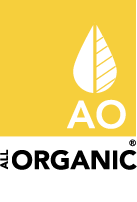Why It’s Important to Wash Your Produce
Posted on October 07 2019

It’s second nature: You pick up an apple, run it under cool water, and then take a bite. But why do we rinse our produce?
We wash our produce because the process gets rid of pesticide residue, soil, debris and sometimes, bacteria. Even if we buy organic produce, it’s still necessary to wash produce to get rid of soil and germs. One study conducted by the Canadian Food Inspection Agency noted that bacterial contamination was actually higher in organic produce during the summer months.
Harmful germs, like Salmonella, E. coli and listeria, occasionally make their way onto produce. In the United States, nearly half of foodborne illnesses are caused by germs on fresh produce.
Bacteria can get onto fruit and vegetables through the water used in irrigation, the soil produce is grown in, organic fertilizers, or droppings from birds and animals. Then, just think of all of the handlers and environments your produce has been through until it arrived in your shopping cart.
According to the U.S. Centers for Disease Control, the safest produce is cooked; the next safest is washed. The CDC recommends cleaning all fruits and vegetables, regardless of whether they are organic or conventional, whether there is a skin involved, or whether you will cook it or not. For people who are vulnerable to infection, such as the elderly, pregnant women or those with weakened immune systems, these recommendations become even more serious.
Tips to Get the Cleanest Produce
So it’s settled and the public health experts agree: We should wash our produce, always. What’s the best to clean produce? We’ve assembled a list of tips from experts in the field of public health to help you get the cleanest produce possible. . . .
- Wash produce with a fruit and vegetable wash, a clean brush and potable water to remove soil, germs and residue from the produce.
- Always wash produce, even if it has a thick skin. This will ensure that no contaminants enter the produce when cutting.
- Inspect the produce for cuts or bruising as these areas could be points for germs to enter the fruits or vegetables.
- Discard any produce that shows signs of spoilage or contamination.
- Wash any vegetables that are grown in the ground, such as carrots or potatoes, vigorously with a clean brush and a fruit and veggie wash. These items are at an increased risk for coming in contact with contaminants.
- Wash organic produce. Just because organically grown produce do not come into contact with pesticides, that does not mean it does not come into contact with contaminants during the harvesting and transportation process.
By keeping the AllOrganic Fruit & Veggie Wash by your kitchen sink, you’ll never forget to wash your produce, ensuring only the cleanest fruit and veggies are eaten in your house. Because the AllOrganic Fruit & Veggie Wash is made with organic, plant-based ingredients, you know you won’t be adding any chemical residue to your produce—only removing it.


0 comments